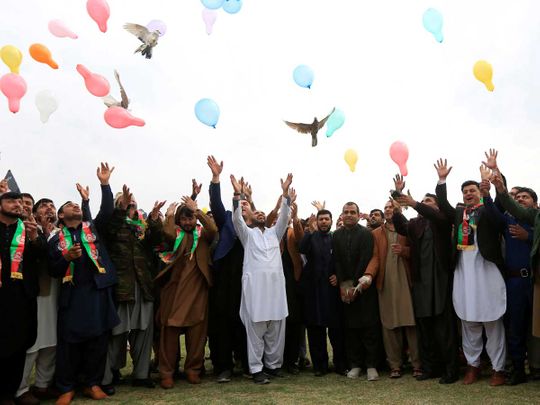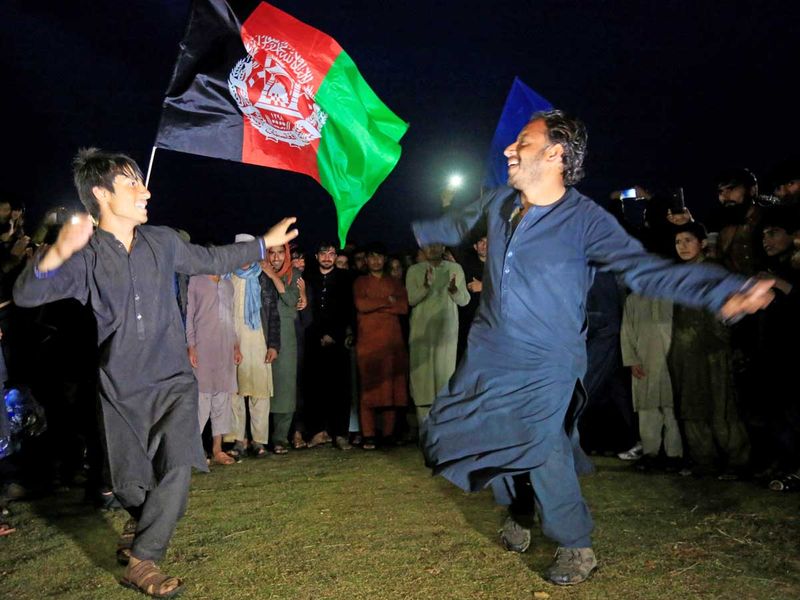
Saturday’s long-awaited peace agreement between the United States and Afghanistan’s Taliban movement has brought home an element of good news for the war-ravaged central Asian country.
In Pakistan, the news was considered a major foreign policy success. For months, Pakistani officials intensely worked behind the scenes to lobby the Taliban leadership to sign a deal to end the longest-running foreign war in America’s history.
Given that this is an election year in the US when Donald Trump is seeking to return for a second four-year term, peace in Afghanistan will arm the American president with a rare foreign policy success. The partial withdrawal of US troops from Afghan territory will lift the mood across America’s streets, possibly reversing the war-weariness.
Unlike the withdrawal of Soviet Union’s troops from Afghanistan in 1989 which appeared to be a humiliating retreat, the end to the US occupation of Afghanistan has been sugarcoated as a respectable exit. For now, at least, the embarrassment suffered by the US when it withdrew from Vietnam in the 1970s, appears to have been put aside.

What happens to Pakistan after the Afghan peace agreement? The road ahead is long and arduous. The best approach to safeguard Pakistan’s interests lies in being seen as an honest broker, dedicated to building peace.
For Pakistan, however, barring some short-term gains in the shape of receiving fresh respectability in Washington and other western capitals for facilitating this outcome, the road ahead will be far from smooth.
As the country struggles to overcome widespread domestic economic challenges, a real or imaginary foreign policy success hardly works to pacify the hard-pressed Pakistanis. So the US-Taliban agreement will not matter in Pakistan as Prime Minister Imran Khan’s government struggles to combat higher inflation and a low rate of economic growth.
More than 18 months after Imran stepped into the high echelons of power, key areas central to the smooth functioning of any state notably economic growth remains well behind the target. And now in the second year of his five-year tenure, the prime minister has so far presented little convincing evidence of exactly how he plans to meet his campaign promises such as overseeing the construction of five million new homes or providing jobs to low-income people.
Food insecurity all-time high in Pakistan
Meanwhile, the multiple challenges before the government in an era of stagflation have made it harder for Imran to ignore rapidly the growing popular lament. For the first time in history, Pakistan appears to be witnessing major food inflation; the challenge of food insecurity has never been the same.
The woes of Pakistan’s average household reveal the sharpest slide in agricultural incomes in the recent past. Beyond the failure of key crops in some instances in the past 12 months, several other issues too have impacted the average household.
Any critique of Imran’s performance must include the failure of the provincial government in Punjab, which enjoys his backing. The largest province in the country is also home to about 60 per cent of Pakistan’s population. So the plunging economic conditions have obviously caused a visible dent in Imran’s popularity.
The motto of the prime ministers’ Pakistan Tehreek-e-Insaf (PTI) or Pakistan Justice Party is to eliminate injustice, and that has taken a beating. For the average Pakistani, the idea of justice appears to be a missing element from their daily lives.
Meanwhile, Saturday’s Afghan peace agreement also highlights another major gap between the reality surrounding Imran’s government and the image it has sought to build. In seeking to bolster his credentials, Imran has sought to lift Pakistan’s profile in the world of diplomacy through a recent initiative to help mend fences between Iran and Saudi Arabia.
Pakistan and world diplomacy
Though it’s commendable, the initiative appeared to be out of sync with reality. At a time when Pakistan struggles to meet its internal challenges, the country can hardly afford to venture out globally on a mission to save the world.
A lesson or two from China — Pakistan’s principal international ally — may well be useful to sober down Imran’s enthusiasm for a global role. Even though China’s political, diplomatic and economic profile well exceeds that of Pakistan, the people’s republic in its zeal to carve out an international role has mainly focused on the South China Sea. It’s a lesson for Pakistan’s leadership as it seeks a role beyond its borders.
What happens to Pakistan after the Afghan peace agreement? The road ahead is long and arduous. The best approach to safeguard Pakistan’s interests lies in being seen as an honest broker, dedicated to building peace in the central Asian country. That will require much hard work by Pakistan, well beyond the Saturday’s historic agreement.
— Farhan Bokhari is a Pakistan-based commentator who writes on political and economic matters.









